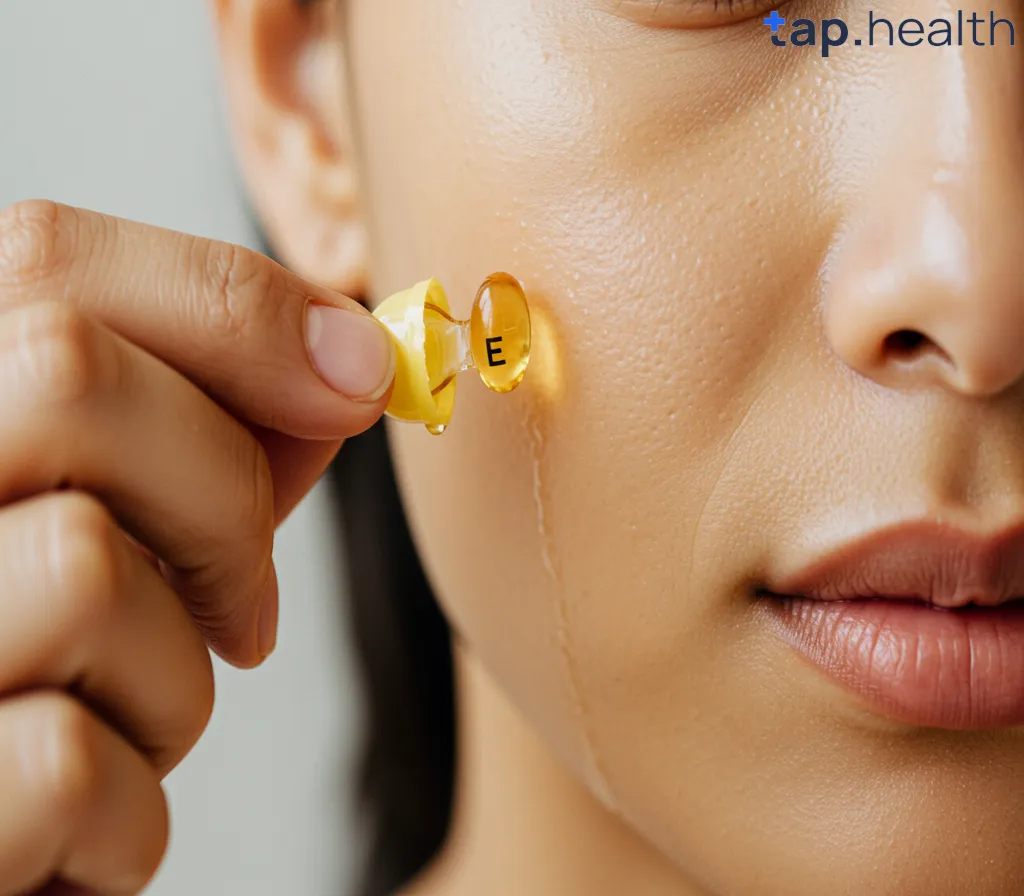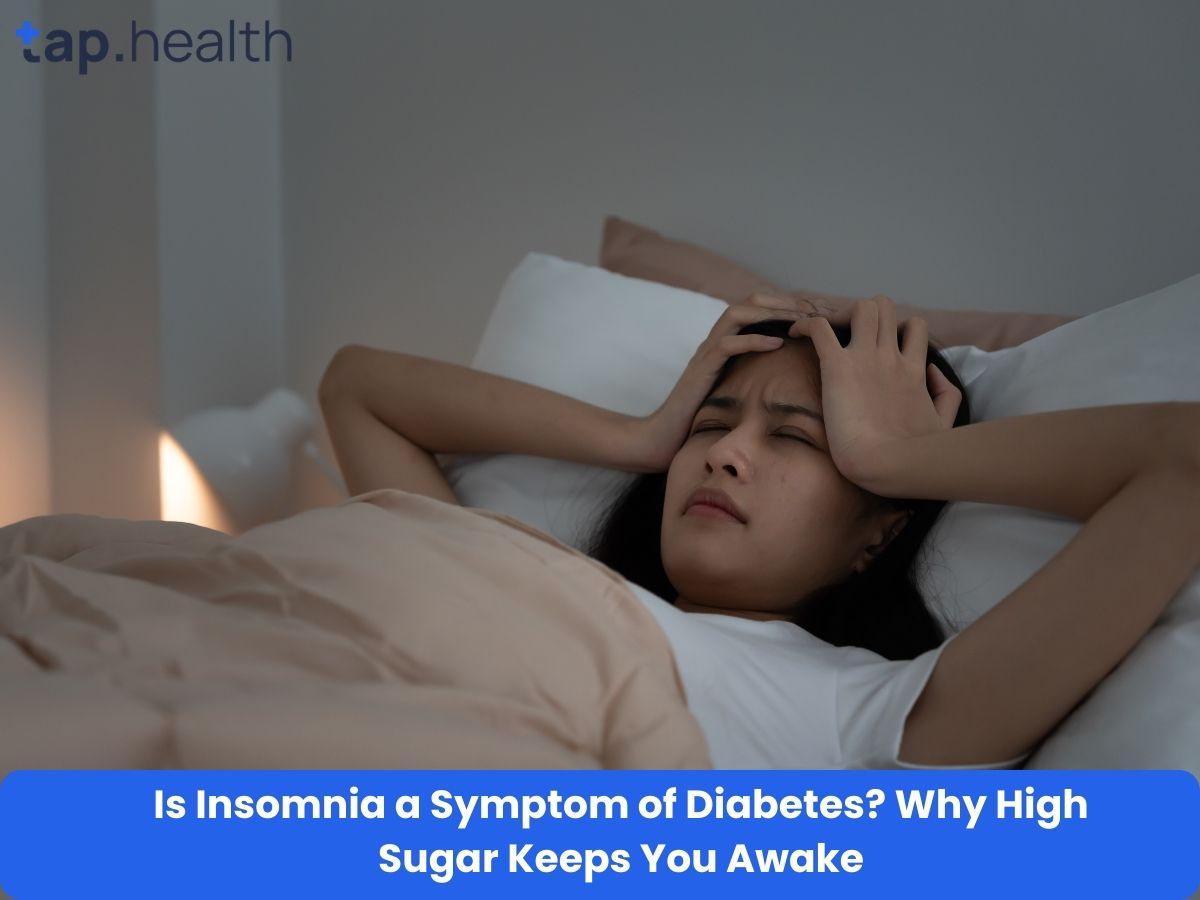You’ve probably seen people pop open a vitamin E capsule and dab the oil on their face. Maybe you’ve even tried it yourself. It looks simple, natural, and cheap—so it must be good, right?
But here’s the real question: Can I use vitamin E capsule directly on face?
The short answer: Yes, but not for everyone—and not always the best idea.
Vitamin E is a powerful antioxidant that helps protect your skin. It’s found in many moisturizers, serums, and night creams. But using the oil straight from a supplement capsule? That’s a different story.
In this guide, we’ll break down everything you need to know about applying vitamin E capsules directly to your face. We’ll cover:
- What vitamin E does for your skin
- Whether it’s safe to use the capsule oil on your face
- Who should (and shouldn’t) use it
- The risks and side effects
- Better ways to get vitamin E benefits
- How to use it safely if you choose to
No confusing science jargon. Just honest, simple facts based on dermatologist advice and trusted health sources like the American Academy of Dermatology, Mayo Clinic, and WebMD.
Let’s get into it.
What Is Vitamin E and Why Is It Good for Skin?
Vitamin E is a fat-soluble vitamin that acts as a powerful antioxidant. That means it helps protect your skin from damage caused by things like pollution, UV rays, and free radicals.
It’s naturally found in foods like nuts, seeds, spinach, and vegetable oils. It’s also added to many skincare products because of its healing and moisturizing properties.
Key Benefits of Vitamin E for Skin
- Moisturizes dry skin: It’s an emollient, which means it helps soften and smooth rough patches.
- Protects against sun damage: It fights free radicals that harm skin cells.
- Helps heal wounds and scars: Some studies show it speeds up recovery after cuts or burns.
- Reduces signs of aging: It may help lessen fine lines and keep skin firm.
- Soothes irritation: It can calm redness and inflammation in sensitive skin.
Because of these benefits, vitamin E is a common ingredient in lotions, face oils, and anti-aging creams.
But here’s the catch: just because it’s good for skin doesn’t mean squeezing a supplement capsule onto your face is safe or effective.
Can I Use Vitamin E Capsule Directly on Face?
Yes, technically, you can use the oil from a vitamin E capsule on your face.
But should you?
It depends on your skin type, how you use it, and what’s in the capsule.
Most vitamin E capsules are made for oral use—that means they’re meant to be swallowed, not applied to the skin. The oil inside is highly concentrated and may contain additives or fillers that aren’t meant for facial use.
So while a little dab might feel moisturizing at first, it could cause more harm than good in the long run.
Let’s look at the facts.
What’s Inside a Vitamin E Capsule?
Not all vitamin E capsules are the same. Most contain:
- Tocopherols (the active form of vitamin E)
- Carrier oils (like soybean, sunflower, or mineral oil)
- Preservatives or stabilizers
- Sometimes fragrance or other additives
These ingredients are safe to eat, but not always safe for your face—especially if you have sensitive or acne-prone skin.
For example:
- Soybean oil is comedogenic (can clog pores).
- Some people are allergic to ingredients in the oil.
- High concentrations can overwhelm your skin.
So, while the vitamin E itself is helpful, the delivery method (a supplement capsule) might not be ideal for your skin.
Is Topical Vitamin E Good for Skin?
Yes—when it’s in the right form.
Skincare products with vitamin E (like serums, moisturizers, or oils) are formulated to be safe and effective for topical use. They’re tested for stability, absorption, and skin compatibility.
These products often combine vitamin E with other antioxidants like vitamin C or ferulic acid, which boosts its power.
But applying oil from a supplement capsule? That’s unregulated and not tested for facial use.
Think of it like this: You wouldn’t use motor oil on your hair just because it’s “oil.” Same idea here.
Can Vitamin E Oil Help With Dry Skin?
Yes, vitamin E can help dry skin—but with limits.
How It Works
- It forms a protective layer on the skin, reducing moisture loss.
- It softens rough, flaky patches.
- It can help repair the skin barrier over time.
If you have dry elbows, heels, or hands, a little vitamin E oil can be very helpful.
But on the face?
It might be too heavy for some people.
Who It Might Help
- People with very dry, flaky skin
- Those in cold, dry climates
- Older adults with thinning skin
Who Should Be Cautious
- People with oily or acne-prone skin
- Those with sensitive skin
- Anyone prone to clogged pores or breakouts
If your skin is already oily, adding a thick oil can lead to shine, clogged pores, or acne.
Can Vitamin E Reduce Wrinkles and Fine Lines?
Many people use vitamin E hoping to reduce aging signs.
The truth?
It helps a little, but it’s not a miracle wrinkle eraser.
What Research Says
- Vitamin E protects skin from oxidative stress, which contributes to aging.
- It supports collagen production, which keeps skin firm.
- When combined with vitamin C, it’s more effective at fighting sun damage.
However, there’s no strong evidence that applying vitamin E oil from a capsule reduces wrinkles on its own.
Anti-aging results come from consistent use of proven ingredients like retinoids, peptides, and sunscreen—not just vitamin E.
So while it can be part of a routine, don’t expect dramatic results from squeezing a capsule every night.
Can Vitamin E Help With Acne Scars and Dark Spots?
This is a popular claim: “Vitamin E fades scars!”
But science says… it’s not that simple.
What Happens When You Use Vitamin E on Scars?
- It may help moisturize healing skin.
- Some people report softer, smoother scars over time.
- But many studies show it doesn’t significantly improve scar appearance.
In fact, one study published in the Journal of the American Academy of Dermatology found that 60% of people who used vitamin E on surgical scars saw no improvement—and some even developed contact dermatitis (skin irritation).
Why It Might Not Work
- Vitamin E is thick and doesn’t absorb well into scar tissue.
- It can trap bacteria and oil, worsening acne.
- It may irritate healing skin, especially right after a pimple heals.
For dark spots and post-acne marks, better options include:
- Niacinamide
- Vitamin C
- Azelaic acid
- Sunscreen (to prevent darkening)
So while vitamin E isn’t harmful for scars, it’s not the best choice either.
Can Vitamin E Cause Acne or Clog Pores?
Yes, it can—especially if used wrong.
Why Vitamin E Might Cause Breakouts
- It’s comedogenic: The oils in vitamin E capsules (like soybean or mineral oil) can clog pores.
- It’s heavy: It sits on top of the skin and can trap dirt and bacteria.
- It doesn’t absorb well: Leaves a greasy film that attracts grime.
If you have oily or acne-prone skin, using pure vitamin E oil daily can lead to:
- Whiteheads
- Blackheads
- Small bumps (called milia)
- Increased shine
Even if you don’t break out right away, long-term use can disrupt your skin’s natural balance.
Is Vitamin E Safe for Sensitive Skin?
Not always.
While vitamin E is known for soothing skin, some people are allergic to it.
Signs of Vitamin E Allergy
- Redness
- Itching
- Swelling
- Rash or hives
- Burning sensation
This is more common when using high concentrations, like from a capsule.
If you have sensitive skin, always patch test first.
How to Patch Test
- Prick a vitamin E capsule and squeeze a tiny drop on your inner arm or behind your ear.
- Wait 24–48 hours.
- If no redness, itching, or swelling appears, it’s probably safe to try on your face.
But even if the patch test is fine, start with a small amount and use it only once or twice a week.
Can I Use Vitamin E Capsule Oil Under My Eyes?
Many people use vitamin E to reduce dark circles or fine lines under the eyes.
But the skin around your eyes is very thin and sensitive.
Risks of Using Vitamin E Under Eyes
- Can cause irritation or puffiness
- May clog tiny pores, leading to milia (small white bumps)
- Heavy oil can sit on the skin and crease makeup
If you want to moisturize the eye area, it’s safer to use a lightweight eye cream with a small amount of vitamin E—formulated for that delicate zone.
Using pure capsule oil? Not recommended.
Can Vitamin E Help With Sunburn?
Yes, vitamin E can help after a sunburn—but only as part of a recovery plan.
How It Helps
- Soothes dry, peeling skin
- Supports skin repair
- Works best when combined with vitamin C and moisturizers
But it does not treat sunburn on its own.
What to Do for Sunburn
- Cool the skin with a damp cloth or aloe vera gel.
- Hydrate by drinking water.
- Apply a gentle moisturizer (aloe or fragrance-free cream).
- Avoid harsh products like pure vitamin E oil until the skin heals.
Also: Vitamin E does not protect against sunburn. Only sunscreen can do that.
Never use vitamin E instead of sunscreen.
Can I Use Vitamin E Capsule on My Face Every Night?
It’s not recommended for most people.
Using vitamin E oil every night can:
- Overload your skin
- Clog pores
- Cause buildup and breakouts
- Disrupt your skin’s natural oil balance
If you want to try it, limit use to 1–2 times per week, and only if you have dry, non-acne-prone skin.
Better yet: use a facial product that contains vitamin E along with other skin-friendly ingredients.
What’s the Best Way to Use Vitamin E on Your Face?
If you still want to use vitamin E from a capsule, here’s how to do it safely.
Step-by-Step: Safe Application
- Cleanse your face – Use a gentle face wash to remove dirt and oil.
- Do a patch test – Always test on a small area first.
- Use a small amount – One capsule is more than enough. Split it between your face and neck.
- Mix it with moisturizer – Blend the oil into your regular cream to reduce heaviness.
- Apply at night – Less risk of sun exposure and makeup interference.
- Wait before bed – Let it absorb for 10–15 minutes so it doesn’t stain your pillow.
- Monitor your skin – Stop if you see redness, bumps, or increased oil.
Even better: skip the capsule and use a vitamin E-infused night cream instead.
Are There Better Alternatives to Vitamin E Capsules?
Yes—many!
Instead of using a supplement capsule, try these safer, more effective options:
1. Facial Oils with Vitamin E
Look for blends like:
- Rosehip oil (naturally rich in vitamin E)
- Jojoba oil with vitamin E
- Argan oil
These are lightweight and absorb better than pure vitamin E oil.
2. Moisturizers with Vitamin E
Many day and night creams contain vitamin E along with ceramides, hyaluronic acid, or SPF.
Examples:
- CeraVe Moisturizing Cream
- Olay Regenerist
- Neutrogena Hydro Boost
3. Serums with Vitamin E + C
Combining vitamin E with vitamin C boosts antioxidant protection.
Popular options:
- SkinCeuticals C E Ferulic (high-end)
- TruSkin Vitamin C Serum (affordable)
These are clinically proven to brighten skin and fight aging.
4. Sunscreens with Vitamin E
Many sunscreens include vitamin E to enhance protection.
Using one daily gives you the benefits without the risks of pure oil.
Can I Use Vitamin E Capsule on My Face for Glow?
Some people believe vitamin E gives a “natural glow.”
But real glow comes from:
- Healthy skin cells
- Proper hydration
- Exfoliation
- Sun protection
While vitamin E can help moisturize, it won’t give you a radiant glow on its own.
In fact, if it sits on your skin as a greasy layer, it might make your face look shiny—not glowing.
For true radiance:
- Exfoliate 1–2 times a week
- Use a vitamin C serum
- Drink plenty of water
- Get enough sleep
- Wear sunscreen daily
Vitamin E can support this routine—but it shouldn’t be the star.
Who Should Avoid Using Vitamin E Capsules on Face?
Not everyone should use vitamin E oil directly on their face.
Avoid If You:
- Have oily or acne-prone skin (risk of clogged pores)
- Are prone to milia (tiny white bumps)
- Have rosacea or eczema (may irritate sensitive skin)
- Are allergic to vitamin E or oils in the capsule
- Use other active ingredients like retinoids or acids (can increase irritation)
If you’re unsure, talk to a dermatologist before trying it.
Can Vitamin E Help With Hair and Eyebrows Too?
Yes—sometimes, people use vitamin E capsules on their hair, eyebrows, or lashes.
On Hair
- Can add shine to dry ends
- May help with split ends (temporarily)
- Not proven to grow hair
Better options: hair oils like coconut, argan, or castor oil.
On Eyebrows and Lashes
- Some believe it thickens hair
- No strong scientific proof
- Risk of getting oil in eyes, causing irritation
If you try it, apply carefully with a clean spoolie and avoid the eye area.
Can I Use Vitamin E Capsule on My Face During Pregnancy?
Topical vitamin E is generally safe during pregnancy.
But:
- Avoid oral supplements unless prescribed.
- Don’t overuse topical vitamin E—stick to skincare products, not capsules.
- Patch test first, as skin can be more sensitive during pregnancy.
Always check with your doctor before adding new products.
How to Choose a Safe Vitamin E Product for Face
If you want the benefits without the risks, pick the right product.
What to Look For
- Labeled for topical use – Not just “dietary supplement”
- Non-comedogenic – Won’t clog pores
- Fragrance-free – Less chance of irritation
- Combined with other antioxidants – Like vitamin C or ferulic acid
- In opaque, air-tight packaging – Vitamin E breaks down in light and air
Avoid products that feel greasy or leave a heavy residue.
Can I Make a DIY Face Mask with Vitamin E?
Some people mix vitamin E oil with honey, yogurt, or aloe for a “natural” face mask.
But DIY doesn’t always mean safe.
Risks of DIY Masks
- Unbalanced pH
- Bacteria growth (especially with food ingredients)
- Irritation from essential oils or citrus
- Clogged pores from oils
If you want a mask, use a store-bought one with proven ingredients.
Or stick to simple, tested combos like:
- Honey (antibacterial)
- Oatmeal (soothing)
- Aloe vera (hydrating)
Skip the vitamin E capsule in your mix.
Final Verdict: Should You Use Vitamin E Capsule Directly on Face?
Here’s the bottom line:
✅ Yes, you can use it – if you have dry, non-acne-prone skin and use it sparingly.
❌ No, you shouldn’t rely on it – as a main skincare step or for acne, scars, or anti-aging.
Better Approach:
- Use skincare products with vitamin E instead of capsules.
- Focus on proven ingredients like hyaluronic acid, niacinamide, and sunscreen.
- Save the capsules for swallowing—if your doctor recommends them.
Vitamin E is great for skin—just not in the way most people think.
Real-Life Scenario
Priya, a 28-year-old working professional, started applying Vitamin E capsule oil directly on her face every night. Within a week, her dry skin felt softer and more radiant. But after two weeks, she noticed small pimples on her forehead. When she switched to mixing Vitamin E oil with her night cream twice a week, her skin improved without any breakouts.
This shows that while Vitamin E can be beneficial, using it correctly and in moderation is important.
Expert Contribution
According to dermatologists, Vitamin E oil can improve skin barrier function and reduce oxidative stress, but it’s not suitable for daily or heavy use. Dr. Shereene Idriss, a board-certified dermatologist, mentions that Vitamin E should be used cautiously because pure Vitamin E can trigger allergic reactions in sensitive skin.
Experts recommend:
- Doing a patch test before applying it on your entire face.
- Avoiding Vitamin E oil if you have acne-prone or sensitive skin.
- Using formulated Vitamin E creams or serums designed for facial use, which are safer and more balanced.
Recommendations Grounded in Proven Research and Facts
- Patch Test First: Apply a small amount on your wrist or jawline and wait 24 hours to check for reactions.
- Use Sparingly: Applying it 2–3 times a week is enough for most people.
- Blend with Moisturizer: Mix Vitamin E oil with aloe vera gel or your daily moisturizer for easier absorption.
- Avoid Overnight Use for Oily Skin: Vitamin E is heavy; prolonged contact can clog pores.
- Check for Allergies: Research in dermatology journals shows some people may develop contact dermatitis from pure Vitamin E.
- Consult a Dermatologist: If you have existing skin conditions or are unsure, professional advice is best.
FAQ: Can I Use Vitamin E Capsule Directly on Face?
Q1: Can I apply vitamin E oil from a capsule on my face every day?
No. Daily use can clog pores and cause breakouts. Limit to 1–2 times a week if you have dry skin.
Q2: Does vitamin E remove dark spots?
Not effectively. It may help moisturize, but better options include vitamin C, niacinamide, and sunscreen.
Q3: Can vitamin E cause pimples?
Yes. The oil in capsules can clog pores, especially in oily or acne-prone skin.
Q4: Is it safe to use vitamin E on lips?
Yes, in small amounts. It can help heal dry, chapped lips. Mix with honey or use a lip balm with vitamin E.
Q5: Can I use vitamin E on open wounds or cuts?
No. While it helps healing, applying pure oil to open wounds can trap bacteria and delay recovery. Use antiseptic creams instead.
Q6: Does vitamin E help with under-eye bags?
No. Under-eye bags are usually caused by fluid retention, allergies, or lack of sleep. Vitamin E won’t reduce puffiness.
Q7: Can I use vitamin E capsules on my face if I’m under 18?
It’s not necessary. Teen skin usually produces enough natural oils. Focus on gentle cleansing, moisturizing, and sunscreen.
Q8: How long does it take to see results from vitamin E?
If it helps, you might see softer skin in a few days. But for scars or wrinkles, there’s little evidence of long-term improvement.
Q9: Can I use vitamin E with retinol or acne treatments?
Not together. Both can irritate skin. Use retinol at night and vitamin E only occasionally—if at all.
Q10: Is natural vitamin E better than synthetic?
Natural vitamin E (d-alpha-tocopherol) is slightly more effective than synthetic (dl-alpha-tocopherol). But in skincare, the difference is small.
Final Thoughts
So, can I use vitamin E capsule directly on face?
You can—but it’s not the best or safest choice for most people.
Vitamin E is a helpful antioxidant, but the oil from a supplement capsule is too strong, too greasy, and not made for facial skin.
If you want the benefits:
- Use a facial moisturizer or serum with vitamin E
- Choose non-comedogenic, dermatologist-tested products
- Avoid overloading your skin with oils
Your skin deserves more than a quick fix from a capsule. It needs consistent, science-backed care.
So next time you reach for that vitamin E pill, think twice. Your face might thank you for leaving it in the bottle.



